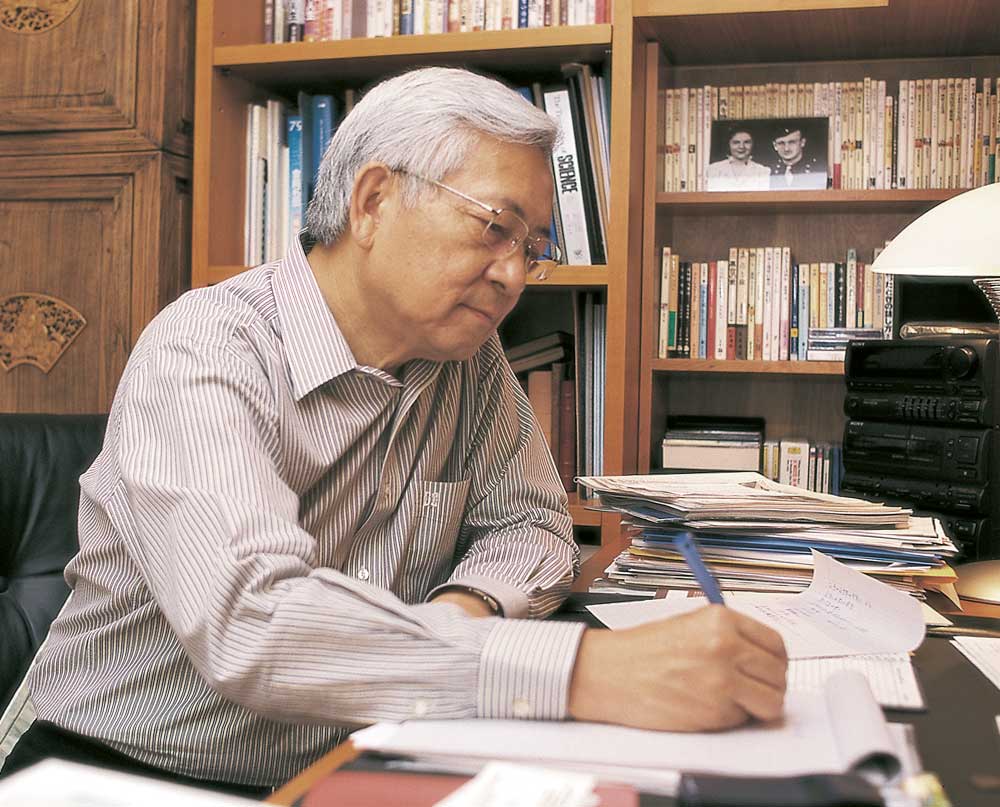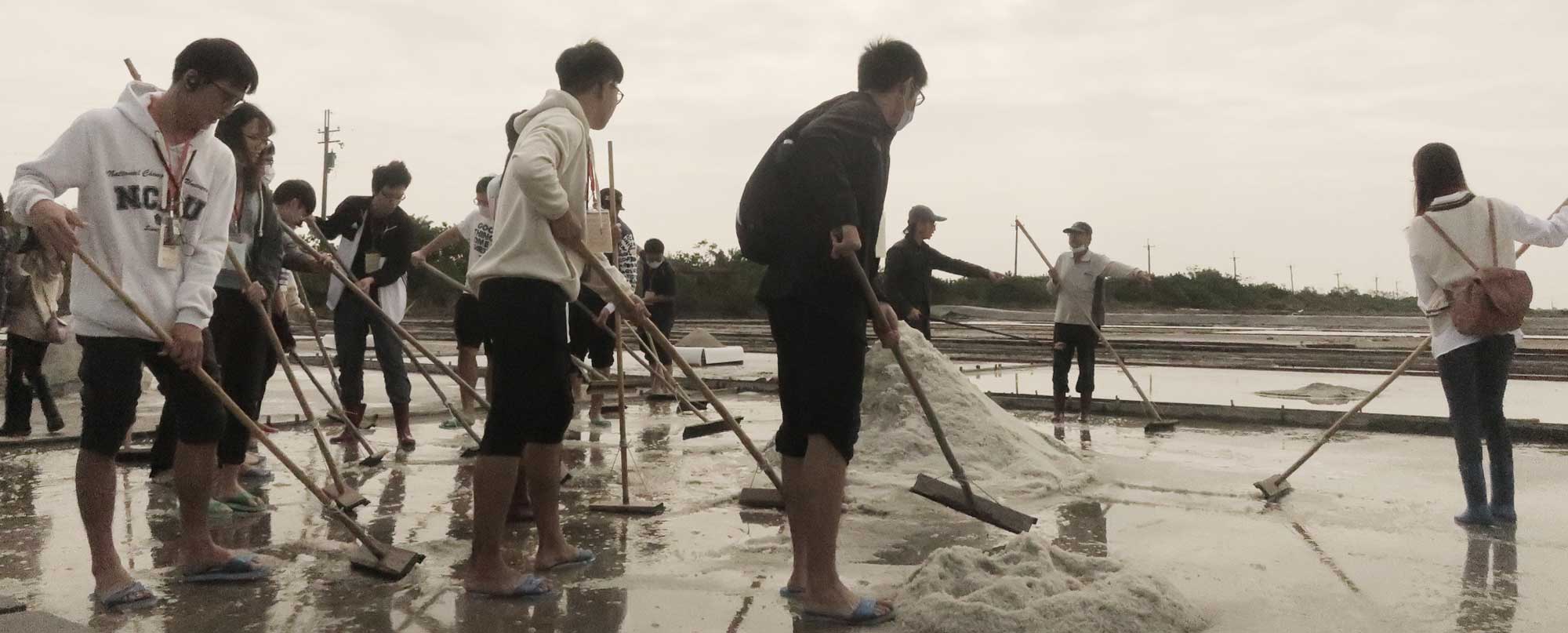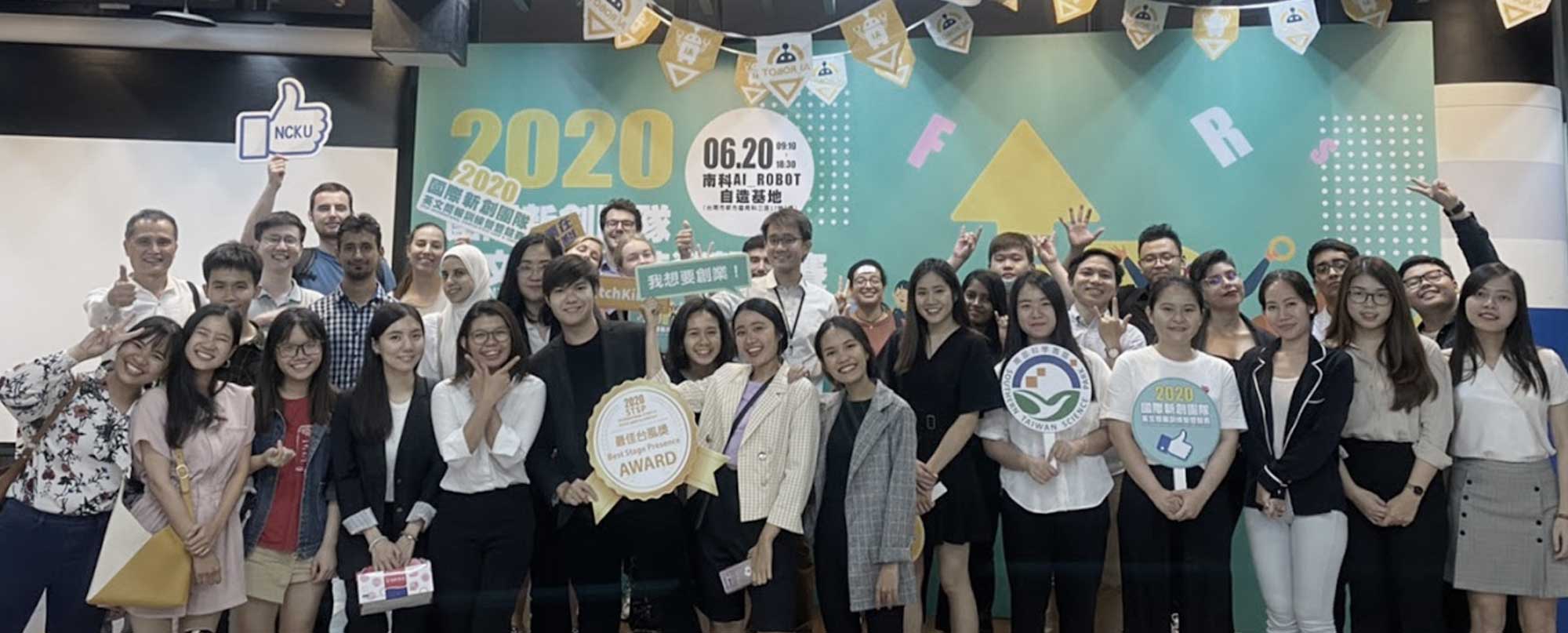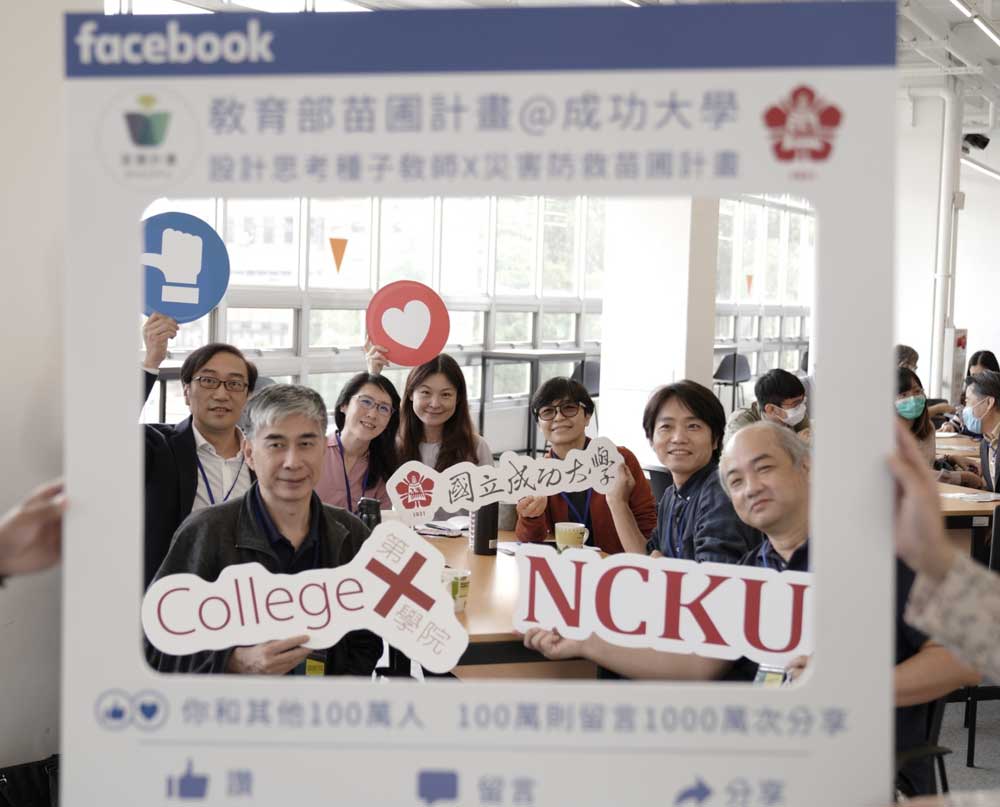The “X” of College X is a two-fold symbol: It is not only the number “ten” in Roman numerals, but also the “unknown value to find” in algebra, which implies the infinite possibilities of interdisciplinary cooperation. (Courtesy of NCKU Matters Where Ambition Meets Innovation)
Through its education programs, NCKU has fostered its students into a leading workforce of professionals for national development
Over the past nine decades, NCKU has endeavored to keep pace with the development of Taiwan’s society. In its practically-oriented academic climate, it has continuously cultivated talented professionals in the fields of civil engineering, hydraulics, architecture, surveying, and chemical engineering to facilitate infrastructure construction and industrial development in Taiwan after World War II. Amid the transformation of Taiwan from an undeveloped country towards a developed one, NCKU alumni have been a leading workforce for its economic and social development. Their outstanding performances are widely recognized by enterprises in Taiwan. In the survey of “Graduates Most Loved by Enterprises in Taiwan” conducted by Global Views Monthly, NCKU has ranked the first place for seven consecutive years since 2015.
Developing a more comprehensive education in line with social trends and social needs
Since its founding as a college of engineering in 1932, NCKU has continued to expand with the establishment of departments and institutes in various disciplines to keep up with the contemporary social and economic development in Taiwan. In the course of its expansion, NCKU has realized its ideal of integrating technology with the humanities in the belief that technology should be based on the humanities. Subsequently, the College of Electrical Engineering and Computer Science, the College of Planning and Design, and the College of Social Sciences were established.
In 1983, the College of Medicine was established, fulfilling the long-cherished wish of NCKU and residents in southern Taiwan. Dr. Kun-Yen Huang, Founder and Dean of the College of Medicine, once said: “One must be a human being (with specific qualities) to be a (qualified) doctor“, emphasizing the holistic goals of a physician to treat a person and not just a patient. He expected NCKU medical graduates to become influential intellectuals able to assume responsibility for social and national developments, distinguishing NCKU College of Medicine as an educational institution providing services to society and care for the underprivileged.
NCKU celebrates its 90th founding anniversary in 2021 under the theme of “Achieve Securely, Prosper Mutually”—highlighting the shared spirit of NCKU alumni to achieve the common good with a modest attitude. Speaking of the purpose of education, Prof. Yu-Min Wang, Vice President of Academic Affairs noted: “NCKU has established close relationships with Taiwan’s society based on the achievements of its outstanding alumni valued by industries and enterprises. However, we need to nurture more interdisciplinary talents to contribute to the development of Taiwan amid globalization. We plan to reform our academic system flexibly, break through disciplinary barriers, enhance knowledge acquisition and multidimensional studies so that our students can be mindful of social issues when they are in school and think about how to respond to social needs and trends in the future. These principles have been applied in the policies we have implemented.
Preparing for the Future Prospects of Interdisciplinary Development and Innovation
In a fast changing world, barriers between various disciplines will gradually be broken down, while the higher education system will adapt to cultivate talents accordingly. Amid different trends, Prof. Yu-Min Wang, Vice President of Academic Affairs, noted that in addition to lifelong learning goals, NCKU has fostered the importance of interdisciplinary learning. NCKU emphasizes the importance of interdisciplinary learning in its education in order to enable students to encounter challenges and solve problems after graduation. Hopefully, our alumni will recognize their own worth and become a part of the collective persistent force to promote the advancement of society.
In the face of an uncertain future, NCKU managed to reform its educational system of nine colleges to establish its tenth college, College X, as a platform for interdisciplinary education and research. The “X” of College X, the first of its kind in Taiwan, is a twofold symbol: It is not only the number “ten” in Roman numerals, but also the “unknown value to find” in algebra, which implies the infinite possibilities of interdisciplinary cooperation. This platform is an environment created by NCKU to incubate students’ problem-solving skills and social skills through various interdisciplinary topics and scenarios so that they may identify issues and challenges that may occur in the real world in the near future and formulate possible solutions.
Through inducing “micro-disturbance” in the existing education system, NCKU made attempts to invent a new paradigm to future learning in a university. A notable example is the establishment in 2017 of a required course on liberal arts called “Exploring Tainan.” The course was organized and taught by an interdisciplinary team of NCKU professors and technicians, NCKU Museum curators and docents, as well as instructors from other universities. Under this course, students are required to engage in a history-centric field study on the culture and history of Tainan for a total of 18 hours in 2 to 4 days. During their field trips, students are instructed to think critically of the relationship between themselves and the environment from ecological, historical, and cultural perspectives, and increase their understanding of the historic significance of the ancient capital of Tainan. Prof. Yu-Min Wang said optimistically: “It’s like planting a seed! When students engage with their environment to see the daily lives of the locals and understand their needs, it can motivate them to contribute substantially to society in the future.”
With future prospects of students in mind, NCKU pondered the question of what abilities are required of a global citizen. We have concluded that an interdisciplinary integration of our faculty members from various departments and colleges will enable NCKU students to acquire their “A-B-C-D-E Abilities” required for global citizenship through their participation in academic discussion of global issues:
.Analytic: the ability to analyze a problem
.Brave: the courage to take risks and act
.Communication: the skills in communication and narration
.Design: the problem-solving techniques based on design thinking
.Empathy: the core value of empathy
These five abilities enable NCKU alumni to contemplate issues, formulate solutions and achieve the common good in society.
Becoming a Borderless University Through Developing New Paradigms
Looking forward to its future prospects, NCKU is constantly thinking about what it can do to the world. We are willing to challenge ourselves to reform our academic system and curricula by continually breaking the existing frameworks and launching innovations for interdisciplinary studies. Traditionally, an individual college is independent in its disciplinary specialty. Nowadays, colleges are encouraged to extend beyond such limitations, such as by designing flexible courses, or even inviting students to partake in the decision-making process of their curriculum. Such a “course-nominating” not only allows greater flexibility in academic studies, but also encourages students to practice “self-learning.” Students who are involved during the process are often very enthusiastic and interact positively in these classes. According to a post-class survey, a majority of students agree that the curriculum is fulfilling, and more than 90% of the respondents are looking forward to more courses offered in a similar fashion. These innovative courses receive more positive responses than the traditional ones. They are quite popular with students and encouraging to instructors.
During an interview, Prof. Ming-Jer Tang, former Vice President of Academic Affairs, spoke of the influence of an interdisciplinary curriculum: “I notice a significantly new climate in our university in recent years.” Even many outstanding alumni have had the same experience during their visit to NCKU.
“We are progressing towards a borderless university with the establishment of online courses to spread the spirit of NCKU all over the world and promote the international visibility of Taiwan,” said Prof. Yu-Min Wang.
March forward to the World! As education knows no border, NCKU aims to progress as a top university in Taiwan and reach out to become a top university in the world. To this end, it has endeavored to challenge itself, break traditional educational frameworks, envision the future, launch innovations, and connect Tainan with Taiwan and the world. While upholding the ethos of cultivating future talents for both Taiwan and the world, NCKU aspires to be a firmly established influence in the global community to achieve the common good.

Under the leadership of Dr. Kun-Yen Huang, the College of Medicine of NCKU has become distinguished as an educational institution providing services to society and care for the underprivileged. (Courtesy of CommonWealth Magazine)

“Exploring Tainan: the Fishing and Salt-making Industries of Taijiang Wetlands” course, students experience pushing salt (Courtesy of College X, NCKU)

AI_ROBOT@TPSP, 2020 (Courtesy of College X, NCKU)

MOE Interdisciplinary Talent Cultivation Programs in Universities (MIAOPU), Ministry of Education, 2021 (Courtesy of College X, NCKU)
